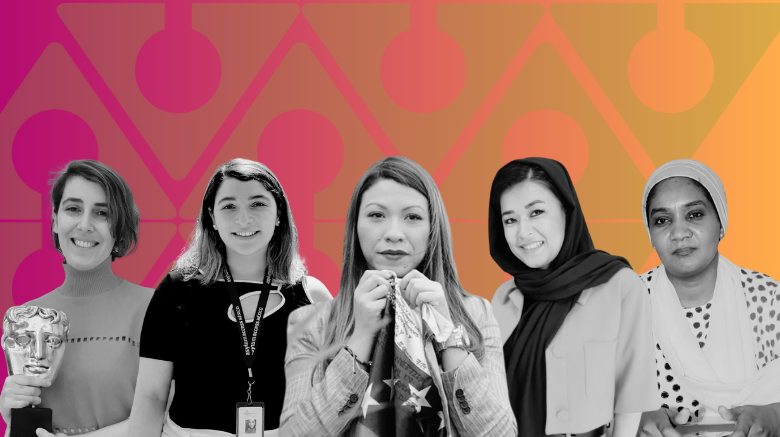War and political persecution were some of the reasons that forced them to leave their home countries. Their experience of forced displacement became a motivation to help others facing the same challenges. On International Women’s Day, we celebrate the efforts of five women whose work for forcibly displaced communities has become their life mission.
Although they come from different cultures and have relocated all over the world, they agree on the challenges faced by refugee women, particularly when trying to lead, as foreigners, civil society organizations. They are also convinced that, as forcibly displaced women, they understand what their peers have experienced and are best positioned to support them.
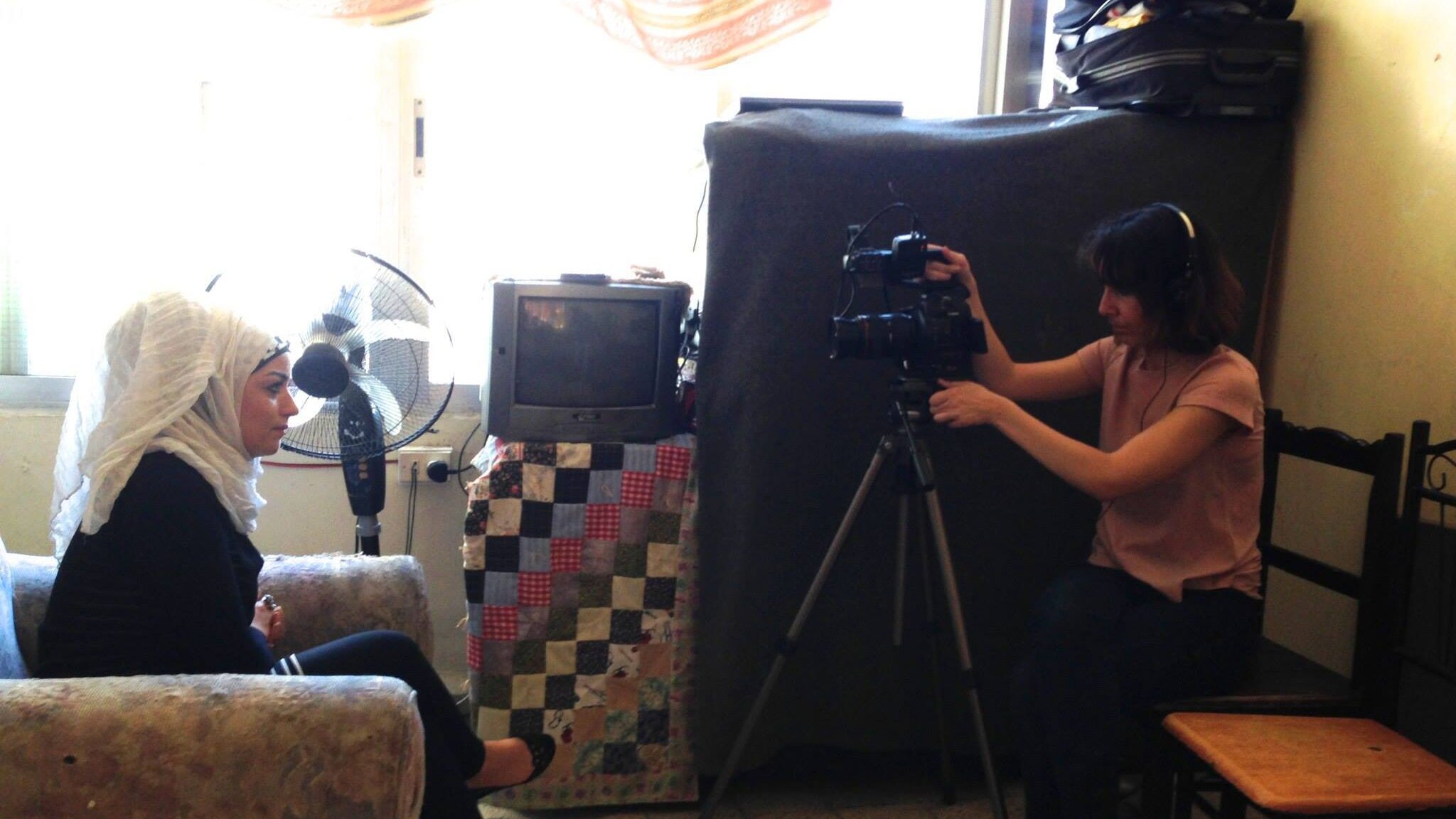
Itab Azzam: Transforming women’s lives through art
Originally from Syria and based in the United Kingdom since 2011, Itab Azzam is a women’s rights activist, author, and award-winning filmmaker. She’s the co-founder and CEO of Makani, a refugee and women-led organization that works with forcibly displaced women in Lebanon and the UK to overcome trauma, fight for their rights, and transform their lives through therapeutic art projects, campaigning, and economic empowerment.
The recognized filmmaker and theater producer’s portfolio includes the series Syrian Schools (2009), the film Queens of Syria (2014) and the documentary series Exodus: Our Journey to Europe (2015-2017). Her work has been recognized with Bafta and Emmy awards. She also coauthored Syrian Recipes from Home, published in 2017, based on encounters with refugee women in Beirut in 2014.
“I strongly believe that women are the most affected by war and conflict. We, as women, understand what other women go through. That’s why it’s powerful and important for women to be in these leadership positions.”
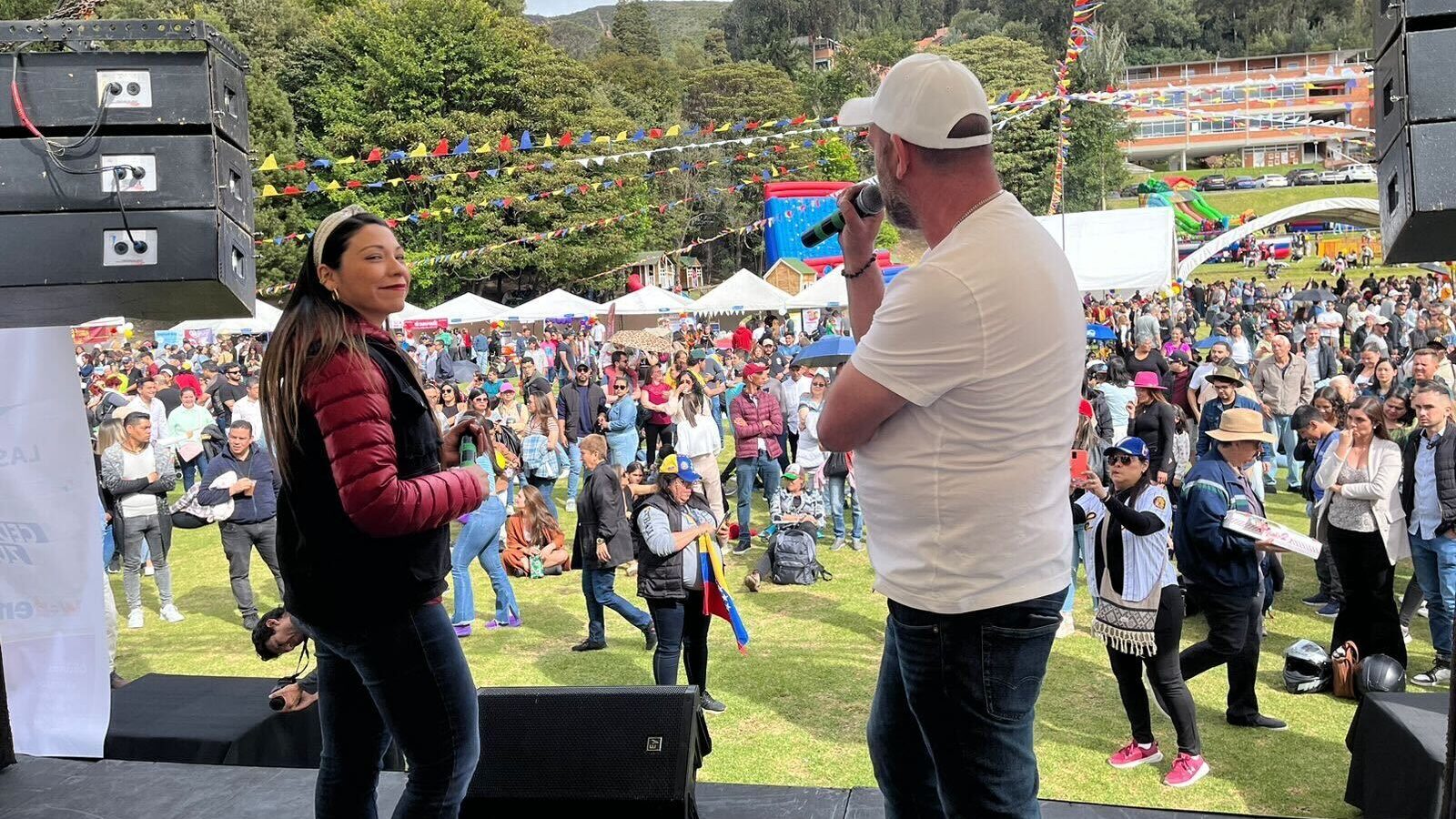
Lublanc Prieto: Breaking down barriers to achieve recognition for women and refugees
Lublanc Prieto is a Venezuelan refugee, lawyer, and human rights activist specializing in migration and refugee issues. She fled to Colombia in 2015 due to political persecution and health reasons. Since her arrival, and while still facing economic and professional challenges to rebuild her life, she supported other Venezuelans seeking access to their rights and adequate public policies. In 2018, she founded the first program for refugees and migrants at the Pontificia Universidad Javeriana’s Legal Clinic.
She has collaborated with Asylum Access since 2020 when she took the first steps to found Refugiados Unidos. Her organization, a founding member of the Resourcing Refugee Leadership Initiative, provides humanitarian aid, legal support, and accompaniment in development processes to forcibly displaced Venezuelans while building bridges with the host community. Lublanc advocates for the effective participation of refugees in decision-making spaces, the transformation of the humanitarian system, and sustainable solutions for refugees in Latin America.
“We women have to go through complex processes to create spaces and open doors so that we can be recognized. The system is not made for the recognition of us as leaders. The system is made for men. If I cry because I am a sensitive woman, they close doors on me. I have had to break down too many barriers so that Venezuelan refugees can have their space and have their voice heard.”
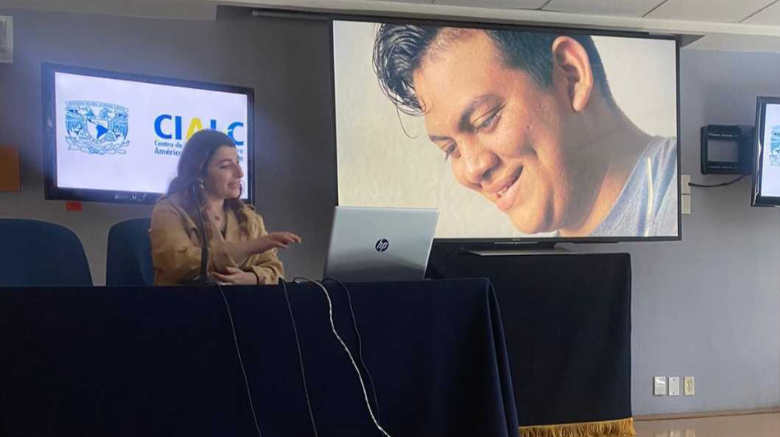
Hanan: Giving refugees a chance to rebuild their lives
Hanan is the Community Outreach and Integration Assistant at Asylum Access Mexico. As part of the Hospitality Route, she supports people seeking asylum with finding a job and a place to live, and guides them through processes like requesting a social security number and accessing health and education services. She also trains potential employers and public officials on migration issues so they can integrate newcomers and offer them opportunities to rebuild their lives.
Hanan studied Philology and Spanish Literature in Damascus and started her career there as a translator and Spanish professor. In 2021, after enduring a decade of war and with the help of a scholarship, she moved to Mexico for a Master’s in Human Rights. She has been passionately supporting forcibly displaced people over the last two years because, as a Palestinian refugee since she was born, she shares their pain. Her grandparents were forcibly displaced to Syria in the 40s, and several decades later, she also had to leave what she considered her hometown. In her new life, she’s committed to giving others the same help she has received throughout her journey.
“I work in human rights because I am a refugee. Sharing the same suffering unites us and makes me help others who went through the same as me. This brings me closer to my clients. I make it clear to them that we are the same and that I am helping them because, at some point in my life, someone helped me too. I want them to achieve their goals as well. I am as happy as them when I help with their needs.”
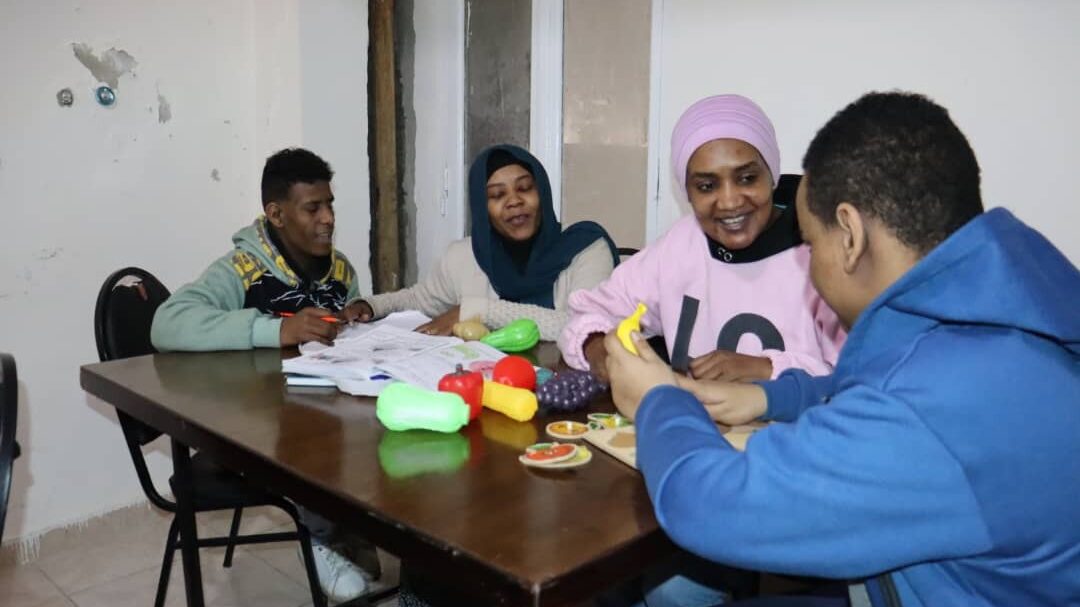
Eman Abdelrahman: Helping mothers and children with disabilities
Eman Abdelrahman is the Founder, Chairperson, and Director of Tafawol, an organization that supports refugee children with disabilities through a school, a physical therapy center, psychosocial programming, and a refugee legal clinic.
When she fled Sudan in 2010, Eman resettled in Egypt with her sister and her then 3-year-old nephew, who was showing signs of autism. Faced with unaffordable education options, Eman felt an obligation to learn how to support these children and their families. A former engineer in her home country, she went back to university to study Language and Speech Disorders and started applying her new knowledge with her nephew. The progress he showed was her motivation to start helping other refugee families facing the same challenges. From starting in 2016 as a small initiative to support children at local schools in Cairo, the organization now has multiple locations. Their efforts have helped educate and integrate 380 refugee children in Egypt and have touched the lives of over 5000 families from the Sudanese, South Sudanese, Eritrean, and Yemeni communities.
“Women are strong. They can bring life into the world, raise their children in the most difficult contexts, and bring positive human beings into society. If they are trusted, they can lead the movement, always.”
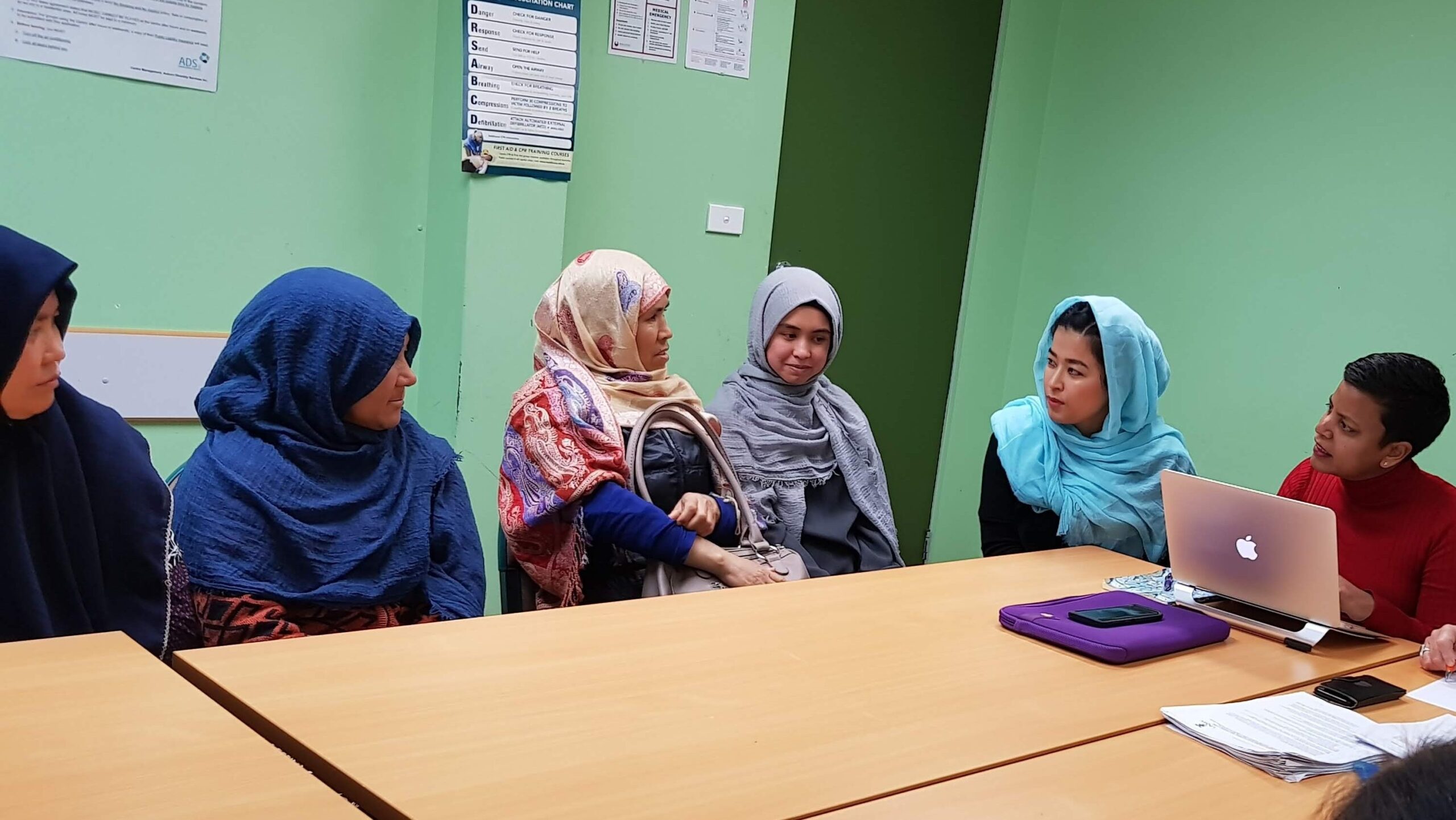
Najeeba Wazefadost: Building transformative networks for increased leadership and participation
Najeeba Wazefadost is a former refugee who fled Afghanistan with her parents when she was 10 years old. She sought asylum from Australia by sea and spent several months in mandatory immigration detention before being recognized as a refugee.
She has a Bachelor of Medical Science and Nursing but has spent the last decade advocating for refugee rights and gender equality. In particular, she has focused on building women-led networks to share experiences, amplify voices, empower each other, and bring policy changes addressing the specific challenges faced by refugee women. She co-founded the Global Refugee Led Network (GRN), Global Independent Refugee Women Leaders (GIRWL), and the Asia Pacific Network of Refugees (APNOR). She is also the founder of an Afghan women’s business network in Asia Pacific, helping women to establish their own businesses. She has been a gender auditor to the United Nations High Commissioner for Refugees and has received numerous awards for her work.
“In a field where diversity of thought is crucial, women contribute a perspective that is often marginalized. Our presence challenges the status quo and highlights the necessity of a more inclusive approach. So, while it may be harder for women to work in this field, our presence is not only necessary but transformative.”

